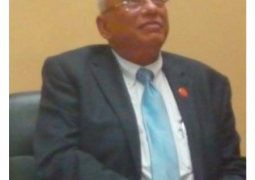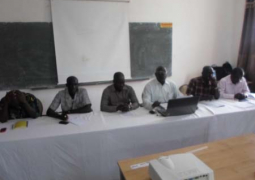The International Centre for Journalists (ICFJ) has taken the bull by the horns by grooming members of the print and electronic media for the challenges of the forthcoming presidential election slated for 24th November.
Between today Tuesday 20 and Friday 23 September, political affairs journalists will converge at the Gambia Press Union for a thorough grounding in election reporting.
The training comes at the back of a media capacity building program in The Gambia launched in November 2010 by ICFJ with funding from the US Department of State’s Bureau of Democracy, Human Rights and Labour.
To be conducted in conjunction with the Gambia Press Union (GPU) and the Foundation for Legal Aid Research and Empowerment, FLARE, the purpose of the program is to enhance the skills of journalists (reporters and editors) working in the country, as well as strengthen the associations which represent them.
It is our view that the challenge of objectivity, impartiality and balance in journalism is faced daily by journalists, but there is no better test of professionalism than that faced in the heat and pressures of a bitterly fought political election, hence the need for the training of Gambian journalists in election reporting procedures.
Basically, journalism is an interface between the government and the people. Journalists are therefore expected to be scrupulous enough to provide citizens with access to all the facts, opinions and ideas being canvassed in the election campaign.
After completing this course, we expect that our journalists will be well prepared to meet head-on the challenges of the heady days ahead.
The point cannot be stressed enough that they must resist with a will the temptation to be biased in their reporting.
The people to whom they are accountable need to be well-informed about all the issues at stake, so that they can decide for themselves.
It is unethical for a journalist to canvass a particular political position. Those who wish to do so would be wise to quit the profession, and run for an elective office.
A bias journalist is a danger to society, as he or she can inflame tempers by publishing partisan reports.
In the build-up to the November polls, journalists must learn to conceal their political affiliation, and stick at all times to objectivity and balance in their reporting.
All political parties must also be given equal coverage, in both the private and public media.
Selective coverage is antithetical to the spirit of good journalism and democracy.
It is also pertinent to emphasize that journalists should hold their own against being seduced materially by politicians on the campaign trail. Those who allow themselves to be lured into accepting gifts of money or other valuables bring the entire profession into disrepute.
The same also applies to the politicians. They should allow journalists carry on with their job without enticing them with goodies. They seem to capitalize on the fact that journalists in our part of the world are poorly paid and, therefore, dangle some irresistible carrots before them.
In law, both the giver and the receiver of a bribe are equally culpable.
Thus, the real test of the success of the workshop will be how well journalists acquit themselves on the campaign trail.
Nonetheless, we salute the ICFJ for taking the initiative to enhance professionalism in journalism practice in the country.
“Surely the glory of Journalism is its transience”
Malcolm Muggeridge



